|
Getting your Trinity Audio player ready...
|
Leadership development in the community is a key part of Leadership Waterloo Region’s mission.
For Diane Wiles, who recently became CEO of the social profit organization, it’s also a topic she is very familiar with through past roles she had in the post-secondary and health-care systems.
“I’ve done a lot of board work,” she said. “I’ve also given a lot of board training through my life.”
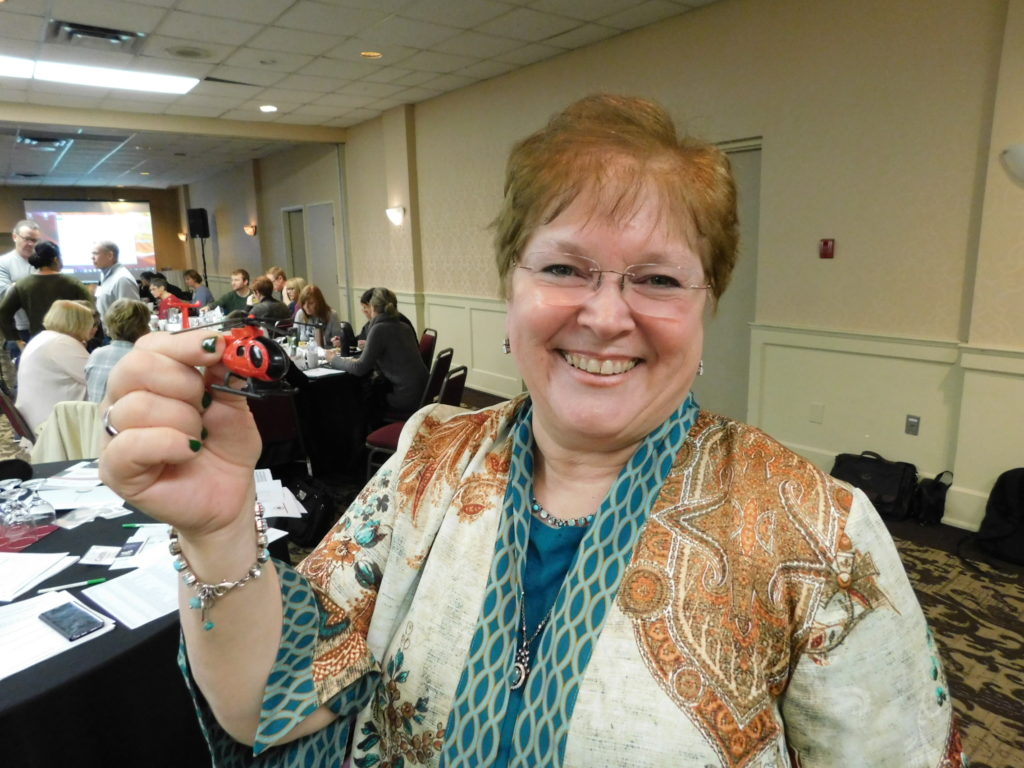
But Wiles said the training she received at Capacity Canada’s 10th anniversary Manulife Board Governance BootCamp was invaluable, considering the recent changes her board has undergone.
“The timing of this (BootCamp) is perfect. We’re (the board) now really clear on what our roles are and that’s the biggest gift that I think the board is getting through this.”
Wiles was among dozens of top administrators and board leaders representing 31 non-profit and social project organizations who participated in the two-day BootCamp. Held Nov. 16-17 at the Holiday Inn Kitchener-Waterloo Conference Centre, Capacity Canada’s facilitators and special guests provided a comprehensive look at the essentials of board governance, as well the importance of collaboration and risk management.
“You are part of a big umbrella that Canadians have decided that’s needed to be handled by not-for-profits,” said BootCamp facilitator Don McCreesh, who has been an active volunteer leader after serving more than 45 years as a leader in the charitable and non-profit sector.
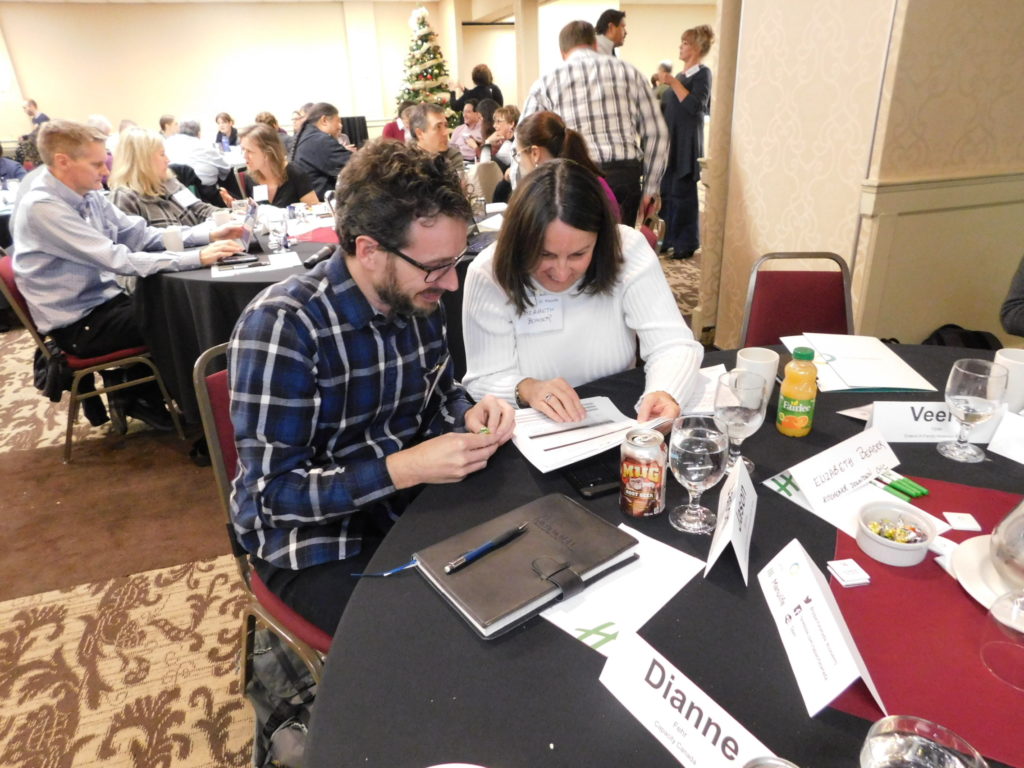
McCreesh spent several hours on the first day of the BootCamp outlining the essentials of better board governance covering a variety of subjects, including the key roles of a board.
Among these are helping to set up a strategic direction of the organization, governance systems and processes, and managing the executive director.
“This is one of the worst jobs in the non-profit sector,”McCreesh said candidly, referring to the latter task. “The job of the selection committee is not over until the person has received their first post-job review.”
He also talked about the recruiting the right people to serve on the board.
“The job is getting tougher and tougher because it’s more demanding,” McCreesh said.
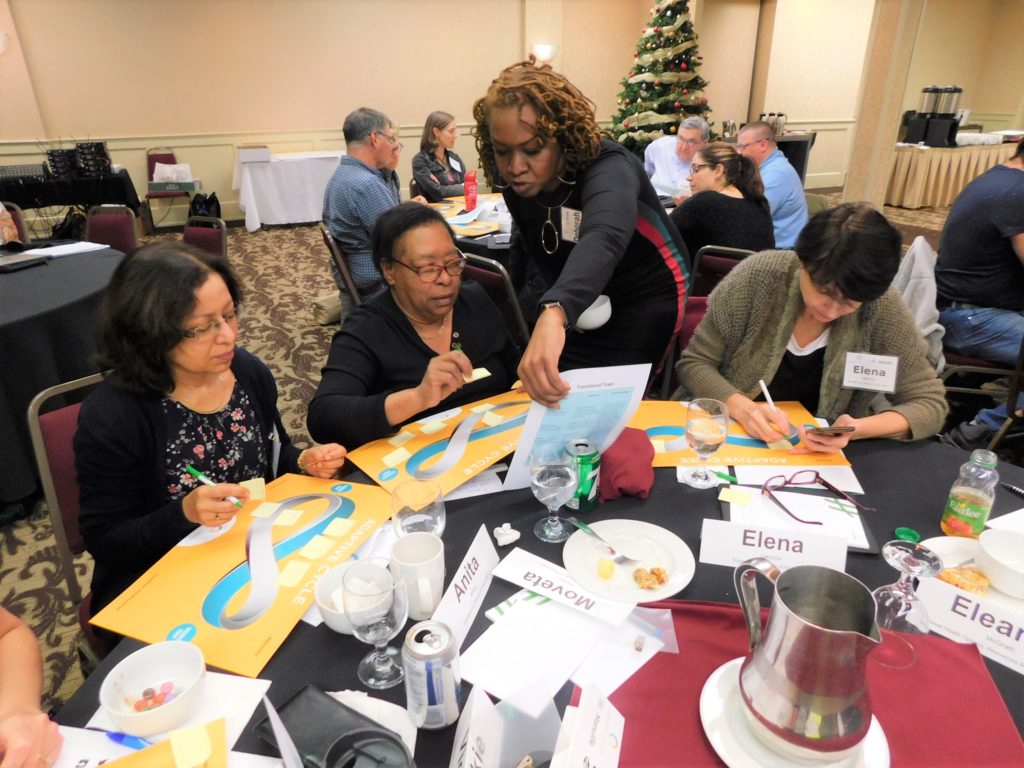
In interview, McCreesh said board members should understand what the best practices and are when it comes to board governance.
“I would like them (BootCamp participants) to leave here with a sense that there are maybe four or five things they can put in place to help them be that reasonably prudent person to get the job done.”
Wiles said the information her board has members received during the BootCamp will help them create a clearer pathway to improve their governance processes.
“It’s given them permission to not think that they have to do it all overnight,” she said.
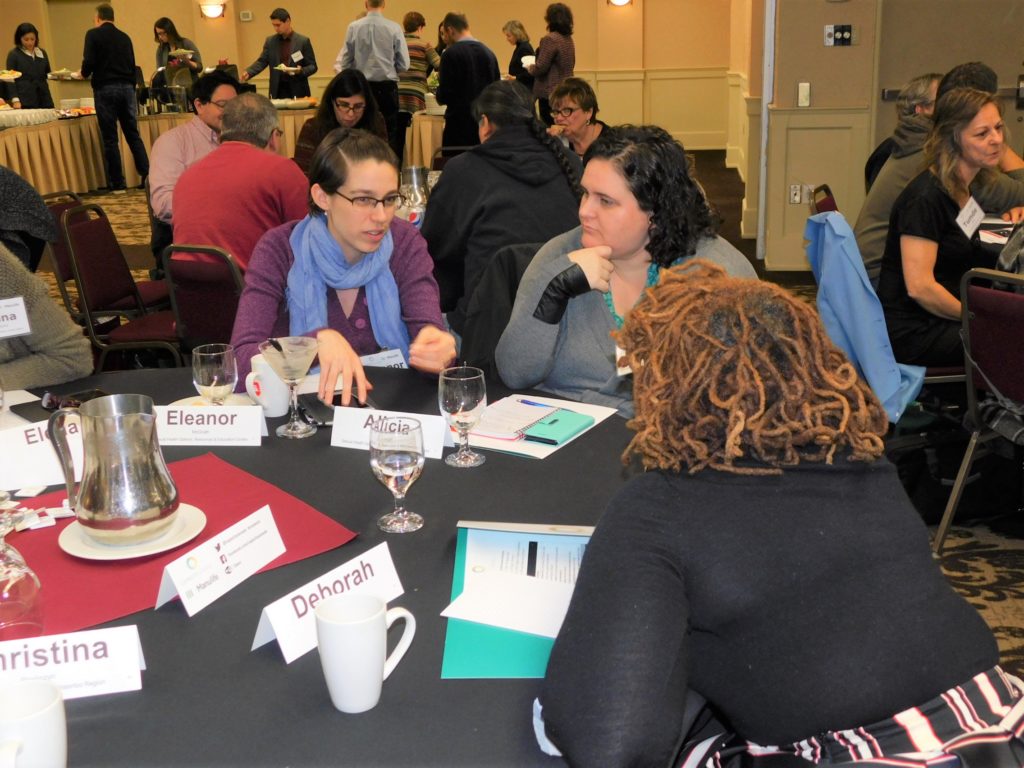
Besides the essentials of board governance, the BootCamp also touched on the topic of risk management, both the financial and reputational risks surrounding any possible incidents that can affect an organization.
“Risk management has become one of the fastest growth areas of governance,” said Capacity Canada facilitator Fred Galloway, who lead the discussion. “But we don’t spend enough time talking about risk.”
He stressed the need for transparency and accountability to not only clients, funders and donors, but society in general.
“They key responsibility (of the board) is to ask the tough questions,” Galloway said. “We’re all here to do good and here for the right reasons, but we are forced to ask tough questions.”
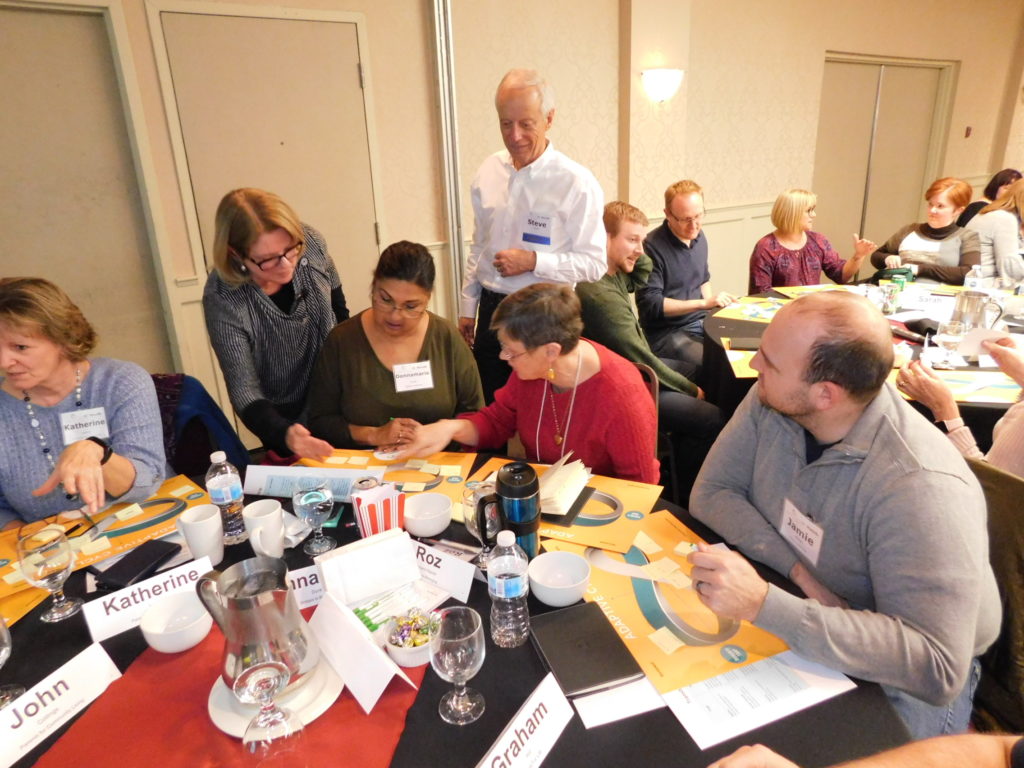
Wiles agreed.
“I’ve always been a professional fundraiser and have always had to be accountable,” she said. “So that is the first and foremost, accountability. To see that our board is taking that very seriously is so important to me because reputation is everything.”
To stress the importance of risk management, Galloway interviewed a panel of non-profit board chairs about specific issues they faced.
Among them was Trevor Herrle-Braun, chair of the Shantz Mennonite Church board.
He described in detail the financial safeguards and processes his board put in place after two long-time congregation members bequeathed a sizable estate to the church which translated into several million dollars. This charitable gift has given the church, whose congregation totals approximately 120 people, the financial means to assist a variety of local,regional, national and international causes.
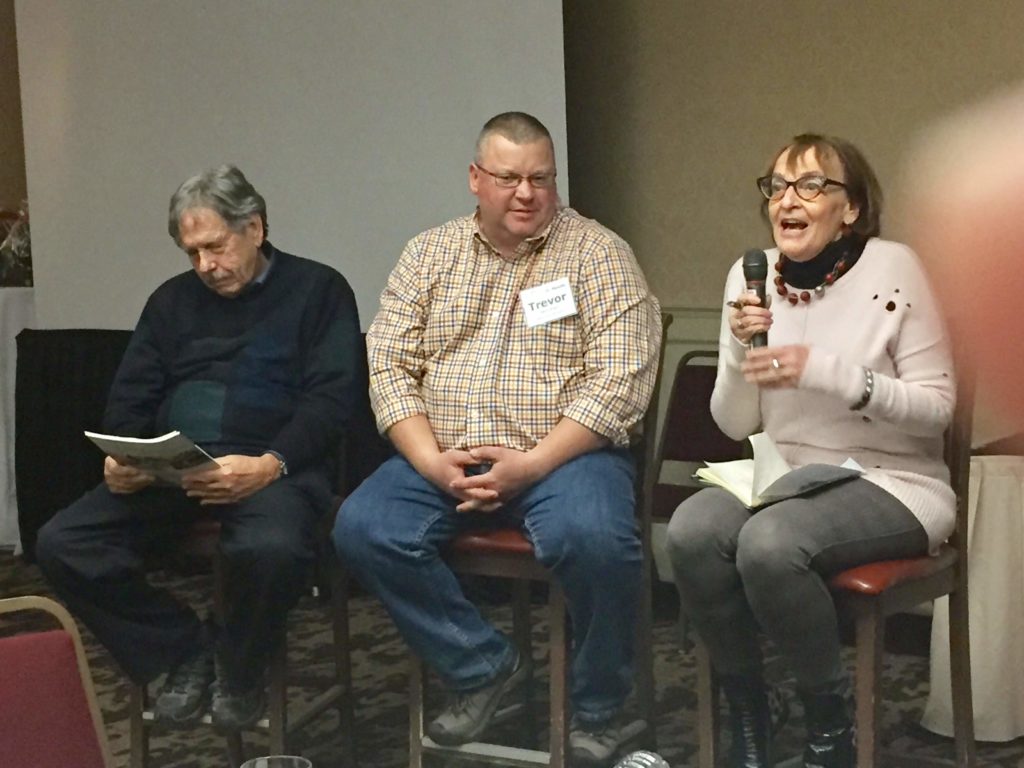
“This has been a real testament to our congregation and having the right people in place who rised to the occasion at the right time,” Herrle-Braun said.
In an interview, he said his board is unique when it comes to governance.
“We don’t have a CEO. We have to take what we’ve learned (at the BootCamp) and apply it to the church council,” he said, adding he was very optimistic the governance training his group received at the BootCamp could still be applied.
“I think bringing it (governance) up to a level where I think it should be so that when my team and I’ve left things in good standing for the next chair, in terms of polices and processes, is my take away from today,” Herrle-Braun said, as the BootCamp was winding down.
Herrle-Braun, who attended a BootCamp nine years ago, said he was pleased to be back and share the experience with his board members.
“For me, it was a refresher. I learned so much that first time,” he said, adding his fellow board members have much to think about now.
“What I like about Capacity Canada is they bring you back to reality. One model isn’t going to work for everybody,” he said.
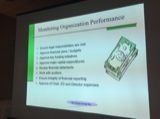
In her discussion during the second day of BootCamp, guest facilitator Susan Radwan, an expert in governance and strategic planning and management, stressed the need for strategic thinking and collaboration.
“The real work of governing is thinking,” she said, explaining how board members should be looking outwards, rather than inward.
Radwan held up a toy helicopter to explain how valuable it is for board members to ‘hover down’ to check out suspected issues before taking off and looking towards the horizon.
“You don’t land the helicopter,” Radwan said. “When you suspect a problem, you lower down and check it out then get back up to the elevation.”
In an interview, Radwan said critical thinking is an important part of good governance.
“It’s so much easier to go into all the things we have to do rather than sit back and reflect and think of what is it that we’re trying to do,” she said. “And let’s frame that first before we jump into action because we might be doing the wrong stuff.”
Radwan also touched on collaboration.
“If you want a group of people to move forward, you need for agencies, in collaboration, to create a shared vision,” she said.
This is something that Wiles agrees with.
“I’m a lover of collaboration,” she said. “I’m not fighting for our piece of the pie, I’m just baking a bigger pie and we’re all going to get a piece.”
BootCamp participants were provided with a governance assignment which is due by February 22, 2019. A follow up BootCamp session and reception will take place March 6, 2019 at the Holiday Inn.

